- Trends, Tips and Looks
- 0 likes
- 718 views
- 0 comments
April is Stress Awareness Month, a time to shine a spotlight on the unfortunately all-too-common issue of stress and how we can better manage it. In today's fast-paced world, stress has become a constant worry for many of us, affecting our physical and mental well-being. But fear not, we’re here to provide you with a practical, easy-to-understand guide on how to navigate the challenges of stress.
When we're feeling overwhelmed, it's easy to neglect our own needs. However, self-care is crucial for managing stress. Make time for activities that help you relax and recharge, whether it's taking a warm bath, going for a walk, or practising mindfulness meditation.
Taking care of yourself is not selfish, it's essential for your overall well-being. For 2024, the theme behind Stress Awareness Month is #LittleByLittle, which highlights the transformative impact of consistent, small positive actions on your overall well-being.
The Stress Management Society is offering a free "Little By Little, A Little Becomes A Lot" webinar on the 11th of April, which is designed to highlight the transformative impact of consistent, small positive actions on your overall well-being. The webinar host, Neil Shah, is a stress management and well-being expert with more than 21 years of experience helping individuals with managing their stress. This webinar is a great opportunity to learn practical strategies for managing stress and improving your overall well-being. Be sure to check it out and register today!
Can Stress Cause Acne?
Did you know stress can negatively impact your skin? As the body’s largest organ, the skin often reflects what’s happening inside your body.
Let's talk about acne. If you've got it, you know how frustrating it can be. The longer it sticks around, the more it can mess with your emotions. If you know how to treat it, you can stop it from getting worse and even prevent those pesky acne scars from showing up.
Acne isn’t always directly caused by stress, as acne forms when excess oils, dead skin cells, hair or bacteria block your pores. However, the most common causes of acne include hormones during teen years or pregnancy, certain medications such as birth control, a family history of acne, or excess stress.
Since the mind and body are interconnected, stress and emotions can have a significant impact on the skin. When we experience stress, our body releases hormones, such as cortisol. The right cortisol balance is essential for our health while producing too much or too little can be harmful.
Stress can have a significant impact on skin health. The release of hormones like cortisol and catecholamines when stressed can lead to inflammation, disruption of the skin barrier, and exacerbate skin conditions such as acne, psoriasis, and eczema. This is where a good skincare routine can come in handy. Our Novaclear range features spot control, a cleanser, a mask and a toner, perfect for keeping your skin clean, healthy and looking radiant.

Can stress affect your hair?
Did you know how stress can negatively affect your hair? We’ve all heard of pulling your hair out due to stress or going grey because of it, but there is more science to it than that.
Firstly, stress can impact hormone levels. When we are under stress, our bodies also release other hormones like adrenaline and testosterone. This hormonal imbalance can make hair follicles more sensitive, leading to increased shedding and thinning of the hair. Stress-induced hormonal changes can also disrupt the normal hair growth cycle, causing more hairs to enter the resting (telogen) phase prematurely, potentially resulting in excessive hair loss.
Secondly, stress can increase oil production on the scalp. This disrupts the scalp's microflora balance, often leading to issues like flaking, itching, and inflammation. Chronic stress-induced inflammation around the hair follicles can further impair hair growth and contribute to hair loss.
There are several types of stress-related hair loss, including telogen effluvium (excessive shedding of resting hairs), alopecia areata (autoimmune-mediated hair loss), and trichotillomania (compulsive hair pulling). The symptoms and severity of stress-related hair loss can vary depending on the individual and the underlying cause.
To manage stress-related hair loss, experts recommend a combination of stress-reduction techniques, such as yoga, meditation, exercise, and cognitive-behavioural therapy, as well as ensuring a balanced, nutrient-rich diet and adequate sleep between 7 and 9 hours every night.
Did you know that topical products, such as hair growth serums, can help thicken and stimulate the growth of your hair too? One example is Nature Spell's Growth Complex Hair Oil, which utilises a combination of Ayurvedic herbs and a scientifically proven root-growth complex to support healthy hair growth, resulting in longer and stronger hair.
Rosemary Oil has fantastic properties that can help with strengthening your hair and promoting hair growth too. Several studies have explored the impact of rosemary oil on hair growth, for example, one study found that rosemary oil promoted hair growth for people with alopecia, with participants of the study showing a significant increase in hair count after 6 months of using rosemary oil.
Healthy Hobbies to Manage Stress
Stress is a common part of modern life, but it's important to find healthy ways to manage it. Engaging in hobbies and activities can be a great way to relieve stress and improve your overall well-being. Here are some stress-reducing hobbies to consider:
Gardening
Gardening can be an excellent stress reliever for several reasons. Getting outside in the fresh air and sunshine, working with your hands, and watching plants grow can all have a calming effect. Gardening also provides a sense of accomplishment when you see the fruits of your labour. Whether you have a large garden, an allotment or just a few potted plants, the act of caring for living things can be very therapeutic.
Drawing, Painting, and Colouring
Tapping into your creative side through drawing, painting, or colouring can be a wonderful way to relieve stress. These activities allow you to focus your mind and get into a state of "flow," where you become absorbed in the task at hand and forget about your worries. The end result is something beautiful that you can enjoy or share with others.
Physical Activity
Regular exercise is one of the best ways to manage stress. Physical activity not only improves your physical health, but it can also boost your mental well-being. Whether it's going for a brisk walk, joining a sports team, or trying an exercise class, finding a physical activity you enjoy can be a great stress reliever.
.webp)
Spread The Word
Stress Awareness Month is an important opportunity to talk more about how stress affects our lives, so please don't hesitate to reach out for support if you're struggling with stress and the effects it can have. This could include talking to a trusted friend or family member, seeking professional help from a therapist or counsellor, or joining a support group.
So, let's embrace Stress Awareness Month and make some positive changes in our lives. With a little self-care and a whole lot of self-love, you can conquer stress and shine brighter than ever before. What are you waiting for? Let's do this!



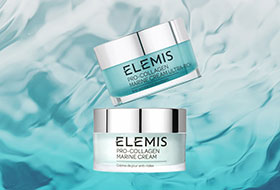
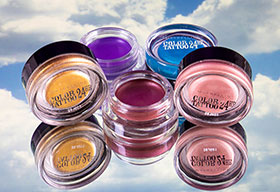

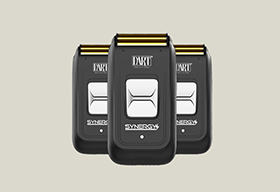
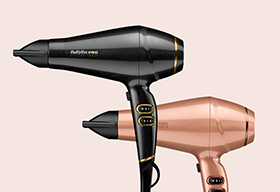
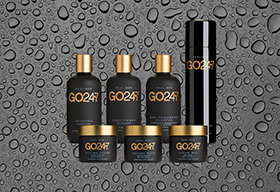
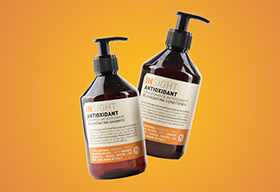
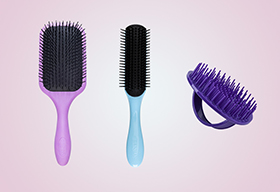





Comments (0)